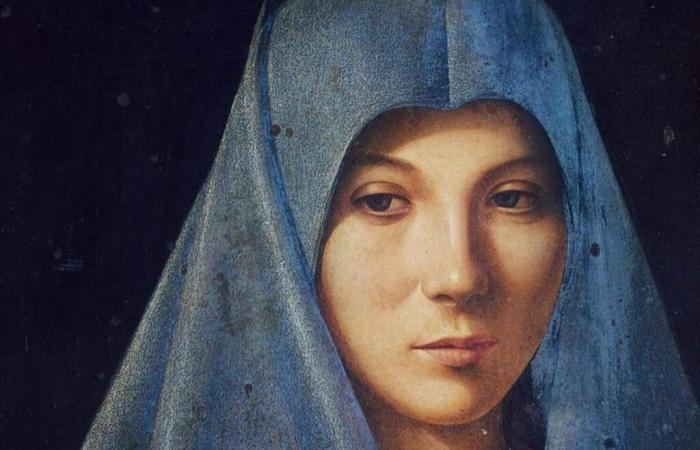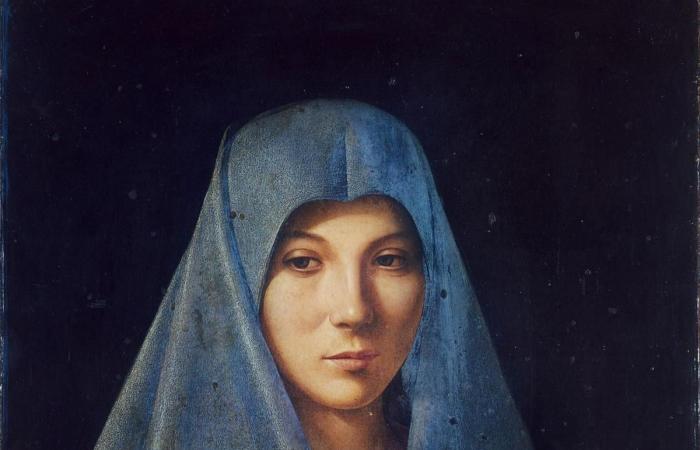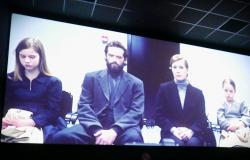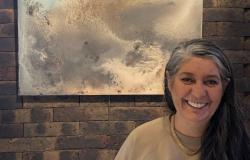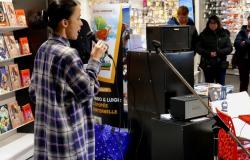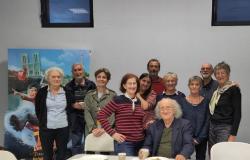From Puy-en-Velay to Berlin, from Fra Angelico to Rossellini, filmmaker Isabelle Brocard explores and challenges preconceived ideas about the myth of the Virgin. And gives it new faces.
Among the works analyzed by the filmmaker, “The Virgin of the Annunciation”, by Antonello of Messina, around 1475. Regional Gallery of Sicily, Palais Abatellis, Palerme
By François Ekchajzer
Published on January 5, 2025 at 11:00 a.m.
De Marie, filmmaker Isabelle Brocard has long had the conventional image of a sweet and pure woman, with a beatific smile. “Everything you don’t want to be when you’re a little girl,” she remembers; like the priest to whom she asked why she had to be a virgin and who replied: “Stop asking questions. » Isabelle Brocard didn’t stop asking questions, but never returned to the confessional.
Many years later, she deepened her knowledge of the Marian myth, immersed herself in books, and today retraces All about Mary twenty centuries of interpretations and exploitations of this venerated figure, omnipresent in churches and museums. “I had first thought of making a somewhat autobiographical animated film, a sort of funny autofiction around my story with Marie; but it didn’t happen. » More didactic is the project of this documentary in two parts, which led her to glean answers from Puy-en-Velay to Siena, Rome or Berlin.
Discover the rating and review
“All about Mary: This obscure object of desire”: the countless faces of the Virgin
“In Israel, I met very open nuns, whose superior told me: “There is one essential thing to know about Mary: first of all, she is a great lover.” Hearing him explain to me that this woman had such a love of God that she received it in her own body struck me. » From the bland representation of the catechism to this mystical image “almost disturbing in its desiring power”, there was a world that is found in his film, carried by the generous and free words of the biblical scholar Anne Soupa, the theologian Marion Muller-Colard, the anthropologist Dominique Desjeux and the historian Annick Delfosse. Also carried by eighteen centuries of paintings evocative of the interpretations that it may have inspired like dogmas plastered on it, finely historicized.
Marie, the revolutionary?
Even in her choice of film extracts intended to open the discourse to a part of the imagination, Isabelle Brocard favors the very characterized expression of a Pasolini (The Gospel according to Saint Matthew), a Tarkovsky (The Mirror) or a Rossellini (Stromboli), worthy of the paintings of Fra Angelico, Jean Fouquet or Vélasquez that his documentary exploits. This also affirms a dusted-off reading of the myth, far from this sclerotic Mariology which assigns Mary to motherhood, compassion and obedience. “Of her, we especially know the episode of the Annunciation, remarks the filmmaker. We often forget that, a few days later, visiting her cousin, she sings the Magnificat which is very clearly a program of inversion of values. A revolutionary text, calling to overthrow the powerful from their thrones and feed the hungry. »
Read the review
“Madame de Sévigné”: a reflection on the condition of women
We also forget that the Argentine dictatorship had the verse in question erased, that “Three Pussy Riot were arrested in 2012 for singing “Holy Mary, Mother of God, Drive Putin Out”” or that « from Beyoncé to [la plasticienne] Orlan, many feminist artists have depicted new Marian figures.” “When we lock Mary into a sanitized image, we lose the imaginary part of belief and we limit the sacred to a moralizing religion,” underlines Isabelle Brocard, who today plans to approach another biblical figure: Mary Magdalene. “After the Virgin, the whore”, announces the filmmaker, convinced that she too “a lot to tell us”.
All about Mary, available on Arte, documentary in two parts, broadcast on January 5 at 4:50 p.m.

